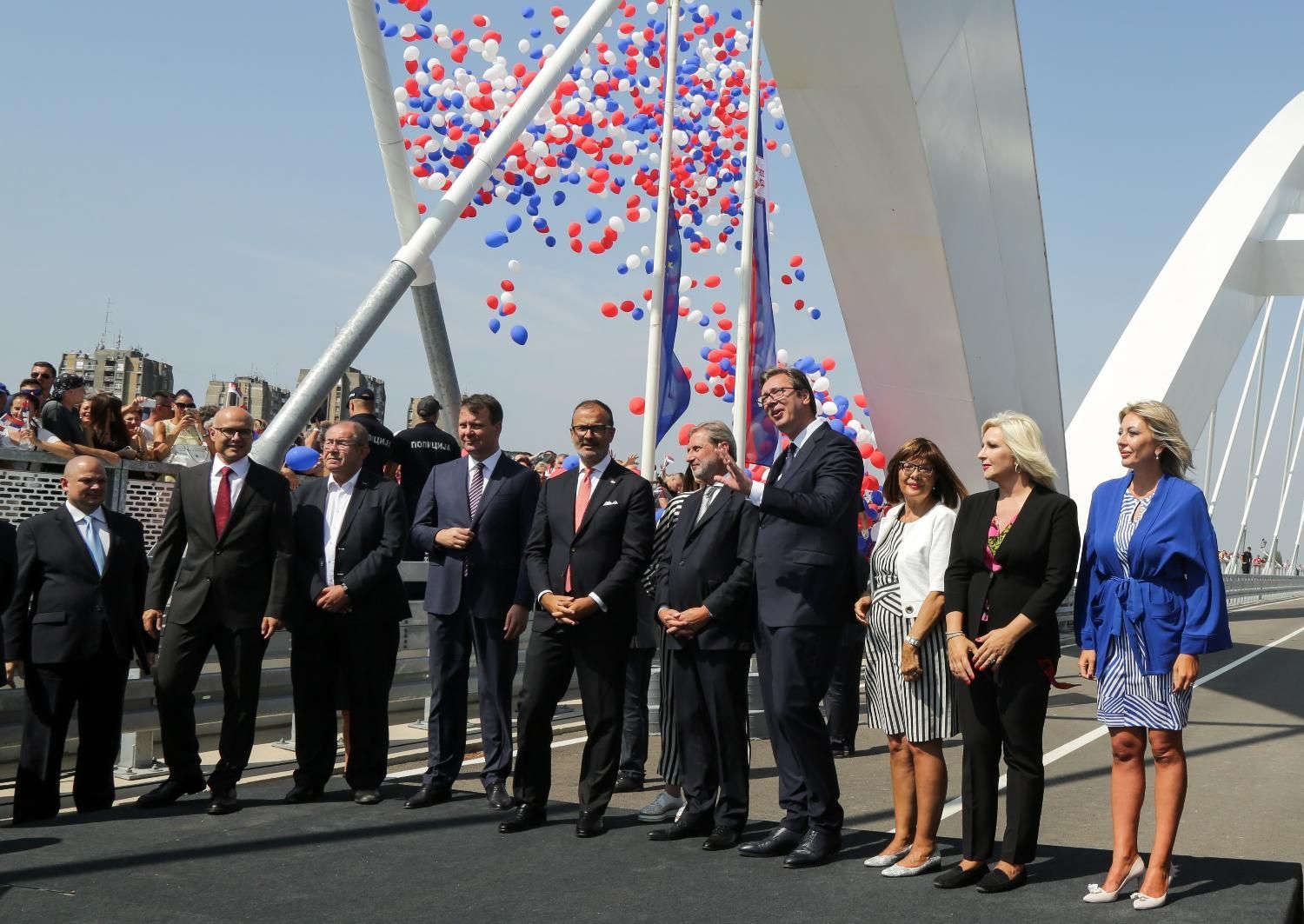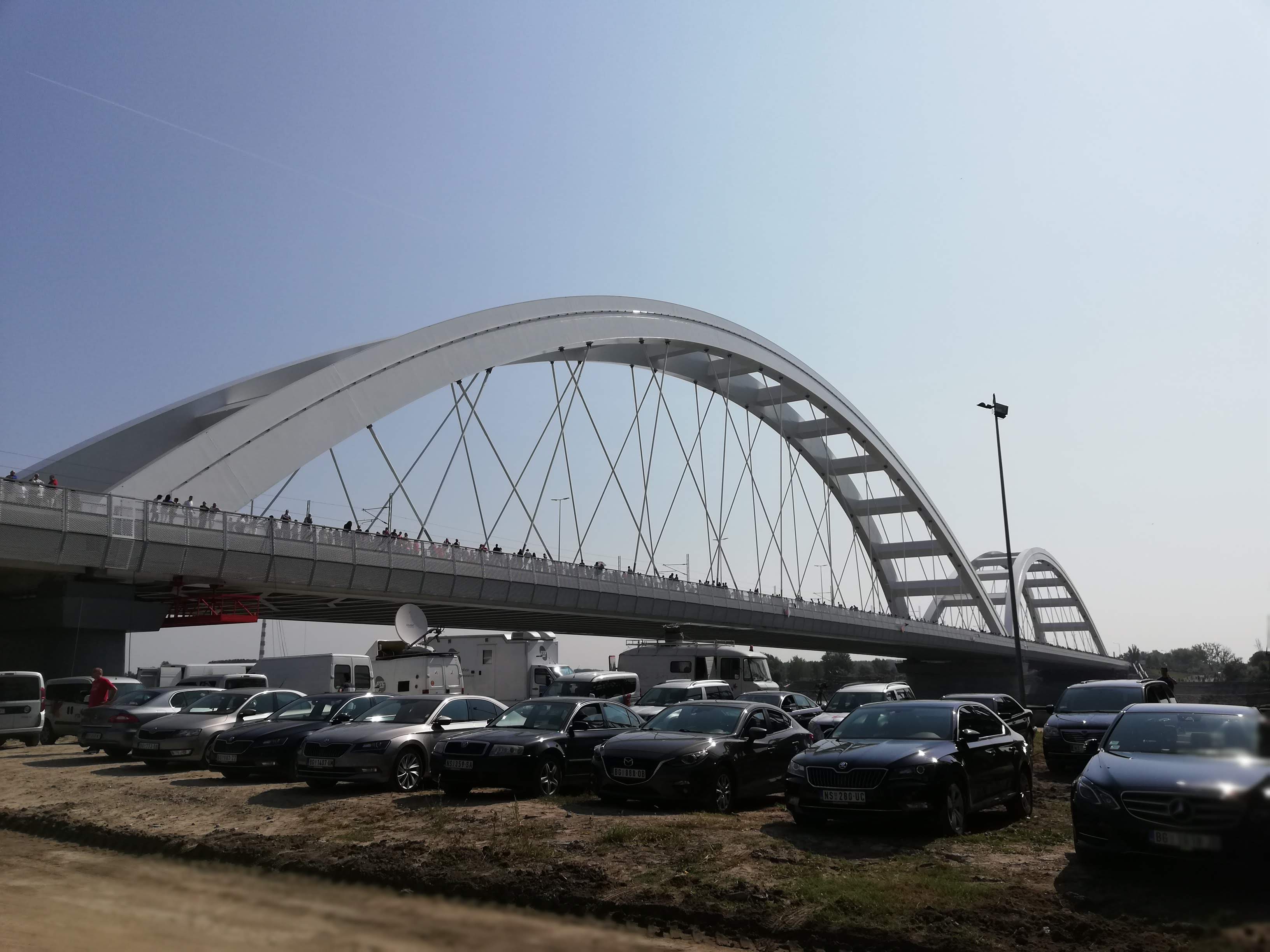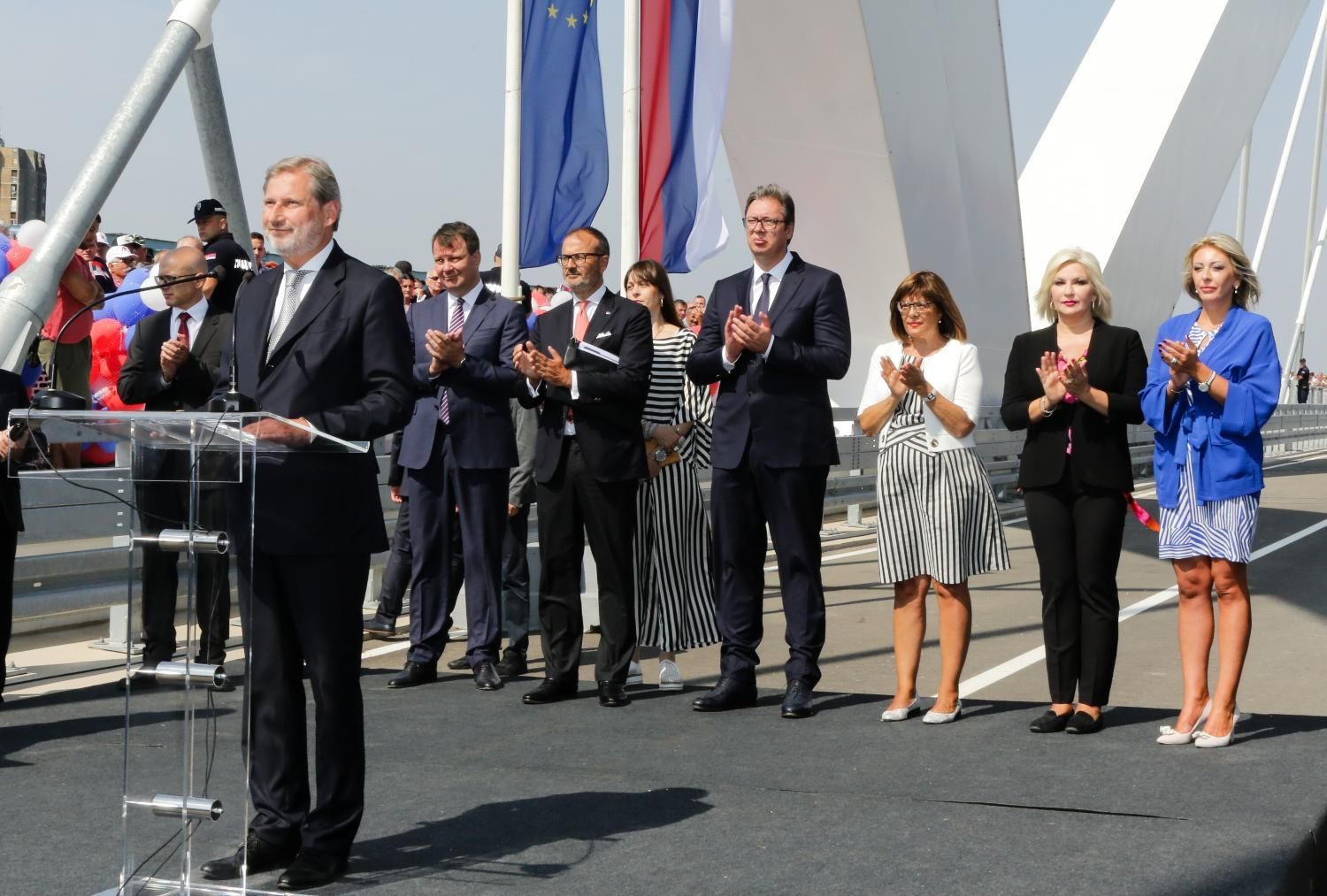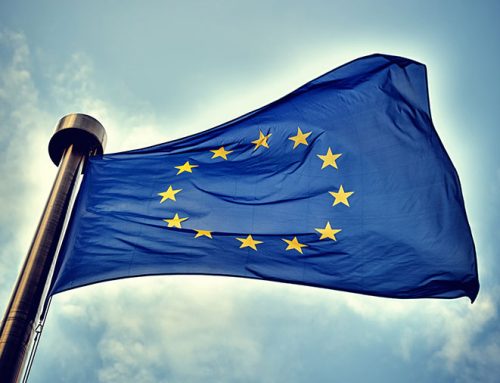A new bridge in Novi Sad, built at the grounds of the former Žeželj bridge, was opened today for traffic and European Commissioner for Enlargement Johannes Hahn and Serbian President Aleksandar Vučić spoke at the ceremony.
“I cannot think of a better symbol than a bridge to best describe the European Union integration process. Integration means bridge building: between citizens, between nations, between the past and the future. President Vučić and I are here today together not only to inaugurate a piece of infrastructure. This bridge is part of your road to Europe. It is symbolic of the European future of Serbia. Today, we stand side by side as partners in a common project; Serbia is progressing on its chosen path to EU accession with our full support. We are building bridges with you, not just for you,” Hahn said.
He added that the European Union has so far invested non-repayable 35 million euros in the construction of the bridge, out of total cost of 54 million euros.
“This is European money well spent. It is an investment in our shared future. But the financing of this bridge is only a small proportion of European Union assistance made available to Serbia. Since 2007 we have provided some 2.2 billion Euros in grants. This figure will reach 3 billion euros by 2020. Let me be clear: these are not loans, with all sorts of strings attached, but non-repayable grants that we provide to Serbia to improve the quality of life of its citizens in areas such as education, rights for consumers, food safety, a cleaner environment and infrastructure, protection of children’s rights and to support farmers. Moreover, European financial institutions have so far given Serbia favourable loans worth around 10 billion euros, so the European Union is by far the biggest donor for Serbia and has given it a great financial support, for which I am very proud of. We are doing all this in order for us to come closer and join our family of nations,” Hahn said. His entire speech you can read here.
 Žeželj bridge in Novi Sad will re-enable traffic along the Danube in Novi Sad section, as well as road and rail traffic across the river, within a segment of Corridor 10, Belgrade-Subotica-Budapest, which is a part of Trans-European Transport Network (TEN-T).
Žeželj bridge in Novi Sad will re-enable traffic along the Danube in Novi Sad section, as well as road and rail traffic across the river, within a segment of Corridor 10, Belgrade-Subotica-Budapest, which is a part of Trans-European Transport Network (TEN-T).
Serbian President Aleksandar Vućič thanked Commissioner Hahn and European partners for the investments and all support which Serbia has been given by the European Union.
“When I stand here and look at this beautiful bridge, I am not happy and proud only for the job finished, but it is clear to me, more than ever before, that our joint work is exactly that – building bridges. There is nothing we need more nowadays than bridges, over all our differences, and Serbia is full of them, and those leading towards our future, our aspirations, goals, towards peace, towards normal and successful country of hardworking people connected with bridges. Bridges take people where they are going. Over this bridge, we are reaching Serbia of fast trains, Serbia which is faster and connected, Serbia without abyssis impossible to cross. Thank you for the money, without which we would not be able to recover our country and thank you for the investments which bring jobs, hope and future to our people,” Vučić said.
He reminded of 1999 NATO bombing campaign on Serbia, during which Žeželj bridge had been destroyed, saying that other sites were destroyed in Novi Sad and Serbia, as well as a series of valueables, and added:
“That is why I am especially glad that we all have taken part in this project, Serbia, Vojvodina and Novi Sad, and I must be totally honest, Europe at most, towards which the bridge is again spreading and connecting us with it,“ Vučić said.
 Many citizens have gathered at the new bridge. Besides Commissioner Hahn and President Vučić, the ceremony was attended by EU delegation to Serbia head, ambassador Sem Fabrizi, Vice-Prime Minister and Minister for Construction, Transport and Infrastructure Zorana Mihajlović, Prime Minister of the Provincial Government Igor Mirović, Novi Sad mayor Miloš Vučević and other state and provincial officials.
Many citizens have gathered at the new bridge. Besides Commissioner Hahn and President Vučić, the ceremony was attended by EU delegation to Serbia head, ambassador Sem Fabrizi, Vice-Prime Minister and Minister for Construction, Transport and Infrastructure Zorana Mihajlović, Prime Minister of the Provincial Government Igor Mirović, Novi Sad mayor Miloš Vučević and other state and provincial officials.
Completion of works of the new Žeželj bridge is important in cultural and infrastructure sense since, as a remarkable and recognizable site, the bridge is a part of a modern heritage of the capital of Vojvodina. It will have the strongest influence in the transport infrastructure domain, as suffocation of railway and road traffic in Novi Sad will decrease, while transport of passangers and goods will improve. It is expected that better transport conditions will have positive impact on the economic development in the region, from the north and the border with Hungary, to the south and central Serbia.
You can read more in the attached document.




